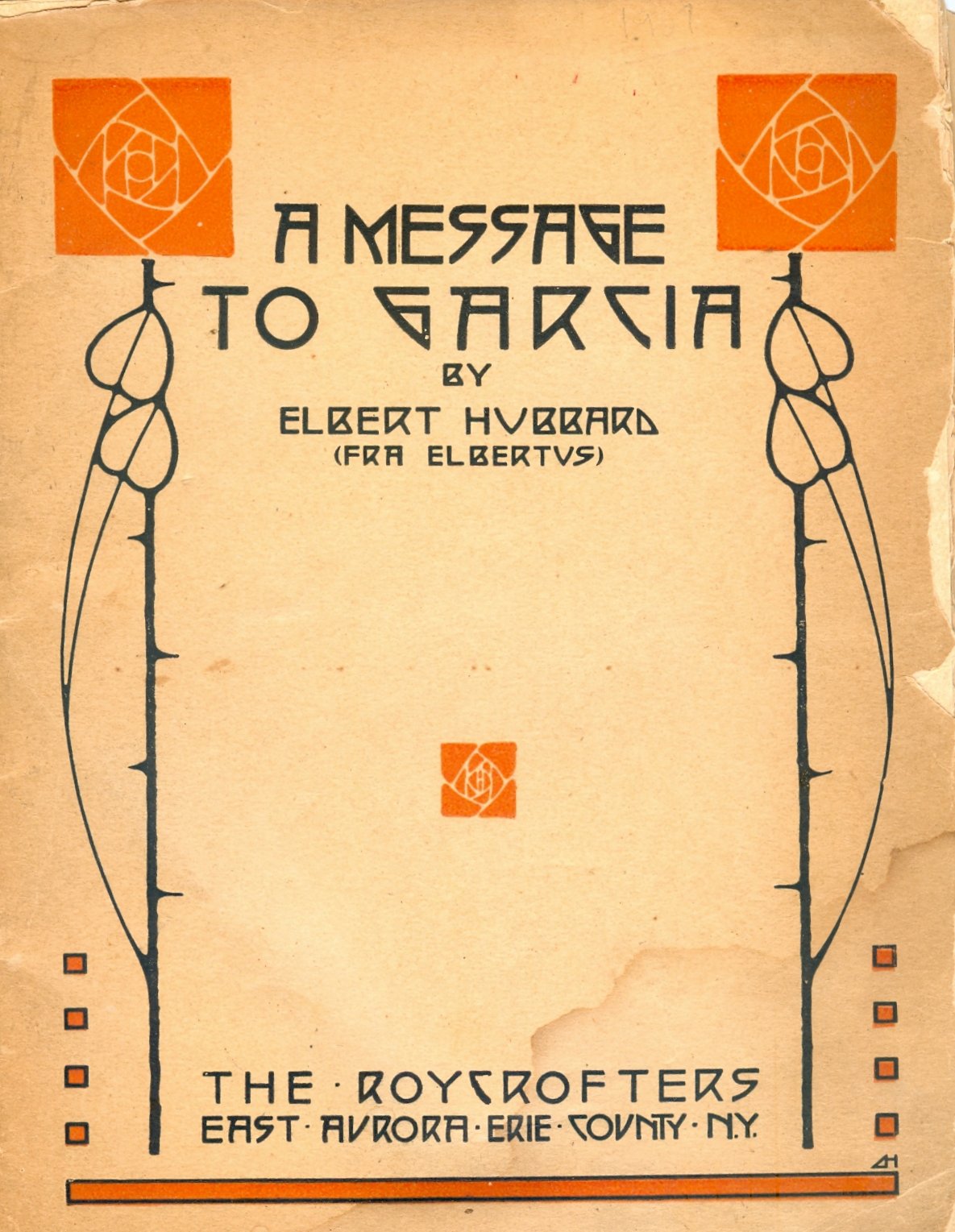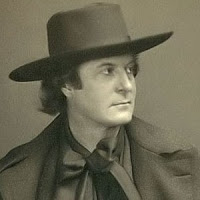A Message to Garcia Summary

4 min read ⌚
 We’ve featured summaries of short books before on our site. One of them was no more than 32 pages! This one’s may be even shorter. And even though more than a century old, it still is as motivational as ever.
We’ve featured summaries of short books before on our site. One of them was no more than 32 pages! This one’s may be even shorter. And even though more than a century old, it still is as motivational as ever.
So, we present to you the summary of Elbert Hubbard’s popular essay “A Message to Garcia.”
About Elbert Hubbard
 Elbert Green Hubbard was an American philosopher, artist and publisher. He wrote many books, including the 14-volume “Little Journeys to the Homes of the Great,” but none could compare in terms of fame and reception to the short essay “A Message to Garcia.”
Elbert Green Hubbard was an American philosopher, artist and publisher. He wrote many books, including the 14-volume “Little Journeys to the Homes of the Great,” but none could compare in terms of fame and reception to the short essay “A Message to Garcia.”
He died, together with his wife, aboard the RMS Lusitania.
“A Message to Garcia Summary”
On February 22, 1899, Elbert Hubbard was angered by a lazy worker. That night, after eating his dinner, he sat down and, in less than an hour, authored a brief 30-page essay about individual duties and diligence.
He decided to use the text as a filler for the March issue of his periodical “The Philistine.” He thought so poorly of it he didn’t even come up with a title.
The people did. The many, many people who bought “The Philistine” specifically to read the text. Soon enough, “A Message to Garcia” became a nation-wide phenomenon. And in few decades, it would become the basis of two films and an everyday phrase; which is probably, the ultimate compliment one can get. (Einstein would know.)
So, what is the message about? And who is Garcia?
Well, in fact, the text is barely about the message to Garcia. It’s more about what it means to us. However, it’s the story which has always attracted the most attention.
And it concerns an American soldier, Andrew S. Rowan, who was supposed to carry a message from then U.S. President William McKinley to Gen. Calixto García. And it was a fairly important task, because the outcome of the Spanish-American war depended upon its success.
You see, García was a leader of the Cubans fighting against Spain and contacting him would have made all the difference.
Now, García was a guerilla fighter, and, according to the essay, nobody knew where he was. Rowan included. Yet, the soldier didn’t hesitate. He just took the letter and in three weeks found a way to deliver it to the Cuban insurgent.
“By the Eternal,” exclaims Hubbard. “There is a man whose form should be cast in deathless bronze and the statue placed in every college of the land.”
Why?
Because, in his opinion, most people are, simply put, flawed and spoiled. Their first instinct is not Rowan’s – it’s actually anti-Rowan’s. They start asking questions, trying to find a way out of performing a task. Most of them ask for help even before they examining the nature of the task; and quite a few of them think how to
They have no work ethic whatsoever and would rather do away with jobs altogether than do them.
Consequently, Hubbard says that “it is not book-learning young men need.” Oh, no! They need “a stiffening of the vertebrae which will cause them to be loyal to a trust, to act promptly, concentrate their energies: do the thing – ‘Carry a message to Garcia!’”
Key Lessons from “A Message to Garcia”
1. Rowan Took the Letter and Didn’t Ask Where Is García at
2. Socialism Will Never Work
3. Honor the Rowans Who Carry the Messages to the Garcías of the World
Rowan Took the Letter and Didn’t Ask Where Is García at
Prior to the Spanish-American War, 1st Lt. Andrew Rowan was given the daunting task of transferring an important message from the 25th U.S. President, William McKinley to Gen. Calixto García, the leader of the Cuban rebels against Spain.
Nobody knew where is García. But, the more important part of the story is that Rowan didn’t even ask that question. He just took the letter, sealed it and delivered it in three weeks.
Socialism Will Never Work
In Hubbard’s opinion, Rowan was an exemplary man. In other words, he was one of the very few people who do their jobs properly. No questions asked, no help required.
However, most of the people are not like that. The average man, thinks Hubbard, is a paragon of “imbecility,” and he is unable or unwilling “to concentrate on a thing and do it.”
So, he asks, how will socialism work then? People don’t work on behalf of themselves. How motivated would they be to work on behalf of others?
Honor the Rowans Who Carry the Messages to the Garcías of the World
However, there are some people out there who do their job properly. And, as rare as they are, these are the people we need to build a better future. “Civilization,” writes Hubbard, “is one long, anxious search for such individuals.” Honor them.
And start by reading the whole book. It’s in public domain – and it’s very brief.
Like this summary? We’d Like to invite you to download our free 12 min app, for more amazing summaries and audiobooks.
“A Message to Garcia” Quotes
The hero is the man who does the work. Share on X The world cries out for such; he is needed and needed badly – the man who can ‘Carry a message to Garcia’. Share on X Slipshod assistance, foolish inattention, dowdy indifference and half-hearted work seem to be the rule. Share on X No man succeeds, unless by hook or crook or threat he forces or bribes other men to assist him. Share on X If men will not act for themselves, what will they do when the benefit of their effort is for all? Share on X







